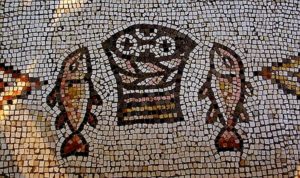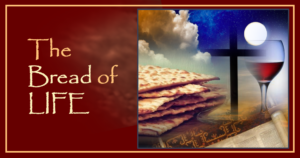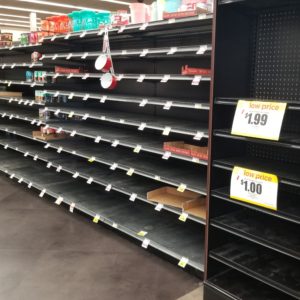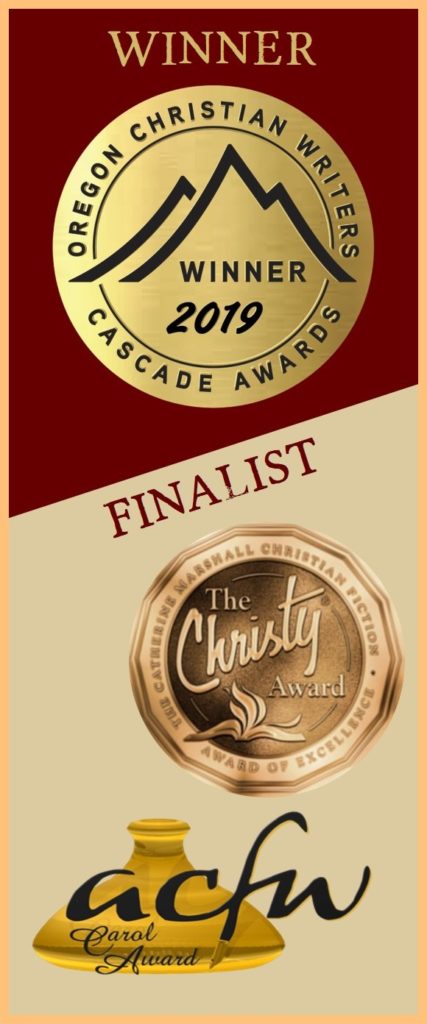The Bread of Life
While the world panic-buys daily essentials, and clamors for stimulus “manna” from Washington, Yeshua cries out,
“I AM the Bread of Life.”
Let’s find fresh meaning in His dramatic claim.
Headlines these days ring with fear. Of what? A novel flu-like virus? Devastating as that is, the deeper fear for many is a world-wide economy in tatters. What will we eat with our fragile supply chains shut down? How will we pay our mortgages with our businesses on hiatus? What will we wear?
“For this reason I say to you, do not be worried about your life, as to what you will eat or what you will drink; nor for your body, as to what you will put on. Is not life more than food, and the body more than clothing?” (Matt 6:25)
“Truly, truly, I say to you, he who believes has eternal life. I AM the bread of life. Your fathers ate the manna in the wilderness, and they died. This is the bread which comes down out of heaven, so that one may eat of it and not die.” (John 6:47-50)
Are His words believable? How different we will look from the world…
…if we put our full trust in the sustenance Yeshua offers!
Remember 9/11/2001? Remember how U.S. citizens drew together and looked to God for a period of time in its aftermath? Maybe it’s just the circles I hang in, or maybe it’s standard election-year divisiveness, but I don’t have that sense this time. My feeling is that people are looking to Washington–to governors–to mayors for salvation from what ails us. Am I wrong?
Therefore they said to Him, “What shall we do, so that we may work the works of God?” Jesus answered and said to them, “This is the work of God, that you believe in Him whom He has sent.” (John 6:28-29)
Yeshua made these claims as He wound up the Galilean phase of His ministry, and as
…the Passover, the feast of the Jews, was near. Therefore Jesus… (John 6:4-5)
John’s gospel is strategically structured around sevens: seven miracles, seven discourses, and seven I AMs. This is the first of seven powerful I AM statements, and John lays out an explicit link between the Feast of Passover and the events surrounding the “Bread of Life” declaration:
- The feeding of the five thousand,
- Walking on water, and
- Yeshua’s bold I AM statement.
A link to Passover is also a link to Moses, one of the great heroes of the Hebrew scriptures. Law-bringer. Freedom-bringer. Sea-parter. Manna-dispenser.
Speaking of Passover, which comes up in a few days, have you thought about this? The ten plagues the Lord inflicted on Egypt were a direct smack-down on their pantheon of idols. What about this culture’s idols?
Do we idolize athletes? Entertainers? Material “success”?
In three short months, the Lord has shut down stadiums so we can’t worship athletes. Concert venues and theaters, so we can’t worship entertainers. The economy and the supply chain, so we can’t worship wealth.
Telling, yes? I contend this is just the beginning of the shake-down of our idols.
Yeshua’s first-century crowd made the link to Moses, too. At the feeding of the five thousand, even the middle-of-nowhere setting (Matt 14:15)…
Hillside above the Sea of Galilee
…brings to mind the way God provided manna in the wilderness. This was a point the crowd didn’t miss. (John 6:30-31)
Therefore when the people saw the sign which He had performed, they said, “This is truly the Prophet who is to come into the world.” (John 6:14)
“The Prophet who is to come into the world” referred to one of Moses’ most important prophecies:
The Lord your God will raise up for you a prophet like me from among you, from your countrymen, you shall listen to him. (Deut 18:15)
We’ll come back to this in a moment, but…
First and Foremost, About the Bread
Bread is a powerful symbol, especially close to Passover. Unleavened bread will play a central role in the upcoming Passover observance, of course, both as a reminder of how God led the children of Israel out from slavery “with a mighty hand and an outstretched arm” (Ps 136:12), and how He provided for them in the wilderness (Ex 12:17).
Not only does bread have a starring role at Passover, it also featured in the Hebrew worship experience in several other ways. Examining them helps us see how profound Yeshua’s claim is.
“Bread of the Presence”
Bread was ever-present in the Temple. Twelve loaves of lechem ha panim לֶ֥חֶם פָּנִ֖ים (“bread of the presence,” also referred to as “showbread” and more literally, “bread of faces”) were perpetually displayed on a golden table within the Holy Place before the veil–one of only three objects placed there. Hint: all three objects speak of Christ!
Tu B’Shevat reenactment: kohanim prepare 12 showbreads & place on Golden Showbread Table. https://t.co/93GKYQwxOq pic.twitter.com/ta3OpEdIHh
— Temple Institute (@TempleInstitute) January 26, 2016
Showbread with table, on display at a Temple Institute reenactment.
The loaves were unleavened, baked from something like semolina flour, shaped in molds for display on a rack as shown in the photo, and large. Each loaf weighed about eleven pounds!
The Talmud describes that a miracle took place every week: When the priests came to replace the [lechem ha panim] with new loaves every Sabbath, they found that those of the previous week remained fresh and hot upon the table, like the moment they were baked. This miracle was seen as a clear confirmation that the Divine Presence indeed rested in this holy place.
Three times a year, when the children of Israel made the pilgrimage to the Holy Temple—on Passover, Shavuot and Sukkot—they were shown the table and the showbread. “Look at how beloved you are by G‑d!” the Kohanim would tell them, pointing to the showbread, which stayed hot and fresh even though it was left out for a whole week.
So the Galileans who witnessed Yeshua’s miracle would have seen the showbread many times, and would have heard the priests testify to the miracle of this “bread of the presence,” which was always before the Lord in His Temple. And they would be expecting to see it again soon, when they journeyed to Jerusalem for Passover.
The showbread symbolizes the material abundance that G‑d gives to the Jews. It’s a continuous reminder that our livelihoods and food come only from G‑d….
Jewish sources also tell us that if a priest ate a portion of bread as small as a bean, he would be completely satisfied. Do you see a clear connection to Yeshua’s statement?
I am the bread of life; he who comes to Me will not hunger, and he who believes in Me will never thirst. (John 6:35)
Something even greater than the Temple showbread is here! And even more vital to our well-being than a stimulus package from Washington!
Here’s the punchline for me. The vast majority of the thousands who enjoyed Yeshua’s miraculous meal on that Galilean hillside never got the chance to taste the Temple showbread. That was exclusive to priests–unless you were born a male in the line of Aaron, you could never be in the club.
These people had heard many times about the miracle of the warm, fragrant showbread, perhaps had even smelled its aroma, but had never had a chance to taste it.
But as followers of Yeshua, we are royal priests, a holy nation (1 Pet 2:9). Each and every one of us has full access to this miraculous, spiritual Bread of Life. Do we take advantage of it?
I’m not talking about swallowing a morsel of bread, or a dry little wafer, at a communion service in church. And I don’t believe that’s what Yeshua was talking about, either.
I’m also not talking about sniffing the aroma. I’m talking about feasting at the table! I’m talking about real, continual intimacy.
One more point. After Yeshua’s bread had been distributed to the five thousand and they had eaten until they were satisfied, the disciples collected twelve baskets of remnants. The same number as the twelve loaves on the showbread table!
Golden Jar of Manna
Behind the veil, in the Holy of Holies, the Ark of the Covenant was also meant to contain a golden jar of manna. (The ark had disappeared by Yeshua’s day.)
I am the living bread that came down out of heaven; if anyone eats of this bread, he will live forever; and the bread also which I will give for the life of the world is My flesh…. He who eats My flesh and drinks My blood abides in Me, and I in him. As the living Father sent Me, and I live because of the Father, so he who eats Me, he also will live because of Me. This is the bread which came down out of heaven; not as the fathers ate and died; he who eats this bread will live forever. (John 6:51, 55-58)
Yeshua is telling them–and demonstrating with powerful signs–that His ministry is far superior even to that of Moses, their great redeeming hero whom they will celebrate shortly at Passover.
He also issued a pointed reminder that God gave the manna, not Moses (cough, Washington) (John 6:32), and that physical manna doesn’t preserve life forever. Whereas Yeshua Himself is this new “bread of life” (John 6:35) which gives eternal life (John 6:40).
As the showbread was given to sustain the priests, Yeshua is the lifeblood which sustains us, His royal priesthood (1 Pet 2:9). The gathering for bread at our communion table symbolizes this intimacy–just as the weekly gathering of priests to eat the showbread from the golden table did. But the spiritual truth of Yeshua as our spiritual food goes much deeper.
Therefore many of His disciples, when they heard this said, “This is a difficult statement; who can listen to it?” But Jesus, conscious that His disciples grumbled at this, said to them, “Does this cause you to stumble? What then if you see the Son of Man ascending to where He was before? It is the Spirit who gives life; the flesh profits nothing; the words that I have spoken to you are spirit and are life. But there are some of you who do not believe.”… As a result of this many of His disciples withdrew and were not walking with Him anymore. (John 6:60-66)
“It is the Spirit who gives life; the flesh profits nothing; the words that I have spoken to you are spirit and are life.” This is why I don’t believe Yeshua was talking about a fleshly ritual involving a physical form of bread. He was talking about fully partaking of the miraculous life in the Spirit–walking in this wonderful intimacy with Himself that He died to give us access to.
John 6 has been called the “anti-church-growth” chapter. Note that Yeshua started the chapter addressing a multitude, which dwindled to a smaller circle of disciples, and by the end of the chapter He was down to just the twelve (John 6:2, 60, 66-67).
So Jesus said to the twelve, “You do not want to go away also, do you?” Simon Peter answered Him, “Lord, to whom shall we go? You have words of eternal life. We have believed and have come to know that You are the Holy One of God.” (John 6:60, 67-69)
Are we sustained day to day by Yeshua’s spiritual manna?
Are we living like we believe His Spirit gives life?
Will we be part of the intimate circle that trusts Him with all our loaves and fishes?

Ancient mosaic at Taghba on the Sea of Galilee.
Photo credit: Berthold Werner [Public domain]
The Great I AM
As I’ve been digging into this, I’ve come to realize it’s true that there are seven that follow the strict formula “I AM the….” And of course, the number seven is always significant in the Bible, representing perfection and completeness.
BUT, there is an eighth I AM in John that is also of earth-shattering significance: the “Great I AM.” And if seven is the number of completeness and perfection, eight is the number of renewal and regeneration.
Unless you believe that I am, you will die in your sins. (John 8:24)
When you lift up the Son of Man, then you will know that I am. (John 8:28)
Before Abraham was born, I am. (John 8:58)
(Here’s more detail on that pivotal “Great I AM.”)
But what was the reaction of many who heard Yeshua’s Great I AM claim?
Therefore they picked up stones to throw at Him… (John 8:59)
Are we living as if we believe all His claims? Unless people around us believe that He is “all that,” they will die in their sins. That’s a fate more certain than contracting a vicious virus!
Daily Offering
One more use of bread in the Temple would have been familiar to Yeshua’s listeners. At the copper altar in the outer court, offerings were made daily, consisting of–get this :)–a yearling lamb with wine and unleavened bread. So by comparing Himself with the bread of life, Yeshua was subtly foreshadowing His sacrifice a year later at Passover as the Lamb of God.
By the way, did you know that Bethlehem (beth lachem) means “House of Bread”? How interesting that the One who called himself the “bread of life” was born in Bethlehem, in fulfillment of prophecy!
Yeshua: The Prophet Like Moses
As we’ve discussed, with His “bread of life” statement, Yeshua claimed a greater ministry than that of Moses. Moses called down “bread from heaven” and instituted the “bread of the presence.” But Yeshua IS the “bread of life!”
Like Moses, Yeshua knows the Lord “face to face” and beholds His form (John 1:1, Heb 1:3,13). “Face to face” here is panim el panim (פָּנִ֖ים), the same Hebrew word used in lachem ha panim, the phrase translated “bread of presence” aka “showbread”! The showbread speaks of intimacy, which Yeshua epitomizes at the right hand of the Father, and which is our birthright as believers.)
John J. Parsons on Hebrew4Christians.com provides an astonishing list of thirty stunning parallels between Moses and Yeshua. I’ll cherry-pick a few here:
- There were 400 years of silence before the Lord sent Moses to deliver the Israelites from bondage to Pharoah. There were 400 years of silence before the Lord sent Yeshua to deliver the world from bondage to sin and death.
- Both were born under foreign rule.
- Both were threatened as infants by wicked kings.
- Both spent their early years in Egypt, miraculously protected.
- Both were initially rejected by the Jewish nation.
- Both were initially accepted by Gentiles (Moses in Midian, Yeshua by the world).
- Both fasted for forty days in the wilderness.
- Both fed the people bread from heaven.
- Both were mediators of a covenant of blood.
- Moses instituted the Passover by means of the blood of a lamb. Yeshua became our Passover, the Lamb of God.
- Moses defeated the Amalekites via his upraised arms. Yeshua defeated sin and death by His upraised arms on the cross.
- Moses offered a baptism providing safe passage through the Red Sea (1 Cor 10:2). Yeshua offers our baptism providing safe passage into “newness of life” (Rom 6:4).
I think this one bears special emphasis.
Sacrificial Love
Moses was a type of Yeshua in that both were willing to die for the sins of the people. After the Sin of the Calf, Moses pleaded with the Lord to forgive His people. “But now, if You will, forgive their sin—and if not, please blot me out from Your book which You have written!” (Ex 32:32) Moses’ offer was declined, of course, as only a sinless sacrifice would do. (Heb 9:14)
How, then, was Jesus a prophet “like Moses” (Deut 18:15)? Well, like Moses, He was a Jew, a Leader, a Prophet, a Lawgiver, a Savior, a Teacher, a Priest, a Healer, an Anointed One, a Mediator between God and man—speaking the words of God—and like Moses, He offered Himself to die for the sins of the people.
– John J. Parsons, Hebrew4Christians.com
But please, please consider this:
Anyone who has set aside the Law of Moses dies without mercy on the testimony of two or three witnesses. How much severer punishment do you think he will deserve who has trampled under foot the Son of God… (Heb 10:28-29)
God’s judgment is one of those “difficult statements” that “causes many to stumble,” but it will come nonetheless. With our world seeming to shake around us, don’t stand on the fence today. Cuz a much bigger shaking is coming!
Behold, now is “the acceptable time,” behold, now is “the day of salvation”… (2 Cor 6:2)
Since all these things are to be destroyed in this way, what sort of people ought you to be in holy conduct and godliness, looking for and hastening the coming of the day of God, because of which the heavens will be destroyed by burning, and the elements will melt with intense heat! (2 Pet 3:11-12)
Let’s live every day in the light of our belief that Yeshua alone holds the words of eternal life. Let’s give Him ALL our loaves and fishes. Let’s step up to the table!
If you’ve never opened God’s free gift of salvation through Jesus (Rom 3:23, 6:23), please please please be persuaded to do it now! It’s simple. Just tell God from your heart that you admit you’re a sinner that needs a Savior (“For all have sinned and fall short of the glory of God.” Rom 3:23) that you’re done running your own life, and that you’re ready to make Jesus Lord of your life.
If you confess with your mouth Jesus as Lord, and believe in your heart that God has raised Him from the dead, you shall be saved. For with the heart a person believes, resulting in righteousness, and with the mouth he confesses, resulting in salvation. For the Scripture says, “Whoever believes in Him will not be disappointed.” (Rom 10:9-11)
The decision that saves you is that simple!
Simple… But no one said living it out will be easy. Especially now.
I’ve partnered with the uber-talented Lauren Crews on a series of posts on the I AMs of Jesus. (PSSST: Lauren’s first book, Strength of a Woman, releases on April 13! Check out the special preorder pricing today!) Here are a few other posts in that series:
- I AM the Light of the World
- Light of the World (Selah)
- I AM the Door
- I AM the Good Shepherd (Part 1)
- I AM the Good Shepherd (Part 2)





Fascinating, penetrating words of insight putting G-d’s words into focus with present day events Linda.
Thy word oh Lord is a lamp unto my feet and a light unto my path… Thank you Linda for shining His light once again.
Enjoyed your post here, and it generated some revelation. one was about the miracle of the showbread. First, we know the Bible is not of any private interpretation. (2 Pet 1:20). So, in the discussion of any symbolic representation of scripture, collaborative exegesis is the method one should use to arrive at the intent of the author. Simply stated Bible interprets Bible. With that in mind, you have shown that “the showbread was always as fresh as the day it was made.” Where? “In the place of meeting within the Temple. Jesus is the Word (logos). And when placed in the Temple (by who?), (the priests), but, in the context of scripture, it would be error to think, “we” are the one’s who perform this action. “We are saved by Grace (Eph 2:8), (a gift), and not by works. So, if it were that “we” are seen as the one who places the bread in the temple, it would be considered “works,” and would not fall under the Grace of Christ. So, it is that the bread, and the revelation of the person Jesus, when placed in the Temple, (1 Cor 6:19) “Or do you not know that your body is the temple of the Holy Spirit who is in you, whom you have from God, and you are not your own?”), that it is Him that is the provision within each of us that believes. Again, is the reality that our only “work” is the choice to believe. (John 6:29). And believe in what, or who? And here is the “I AM! And within the meaning, found in both the Hebrew and the Greek. In Hebrew, “I AM means “The Existant One.” In Greek, “I AM” means “To be, to exist, to happen, to be present. And what are we told we must do? Believe in the One who Exists, that the Father has sent. We do not “verify” His existence. But rather, we come “into agreement” that He exists! But, not only that He exists, but that the Father sent Him to accomplish something that no other man could. He is indeed “The bread of Life!” He will never spoil. He will never grow old, or decay. Within the Temple is the Bread that with one small piece is total satisfaction, and fullness. That piece is not only eaten, but digested, (broken down, [studied]), and at the appointed time, it becomes absorbed and is the very sustaining nourishment for us to be whom we were created to be…